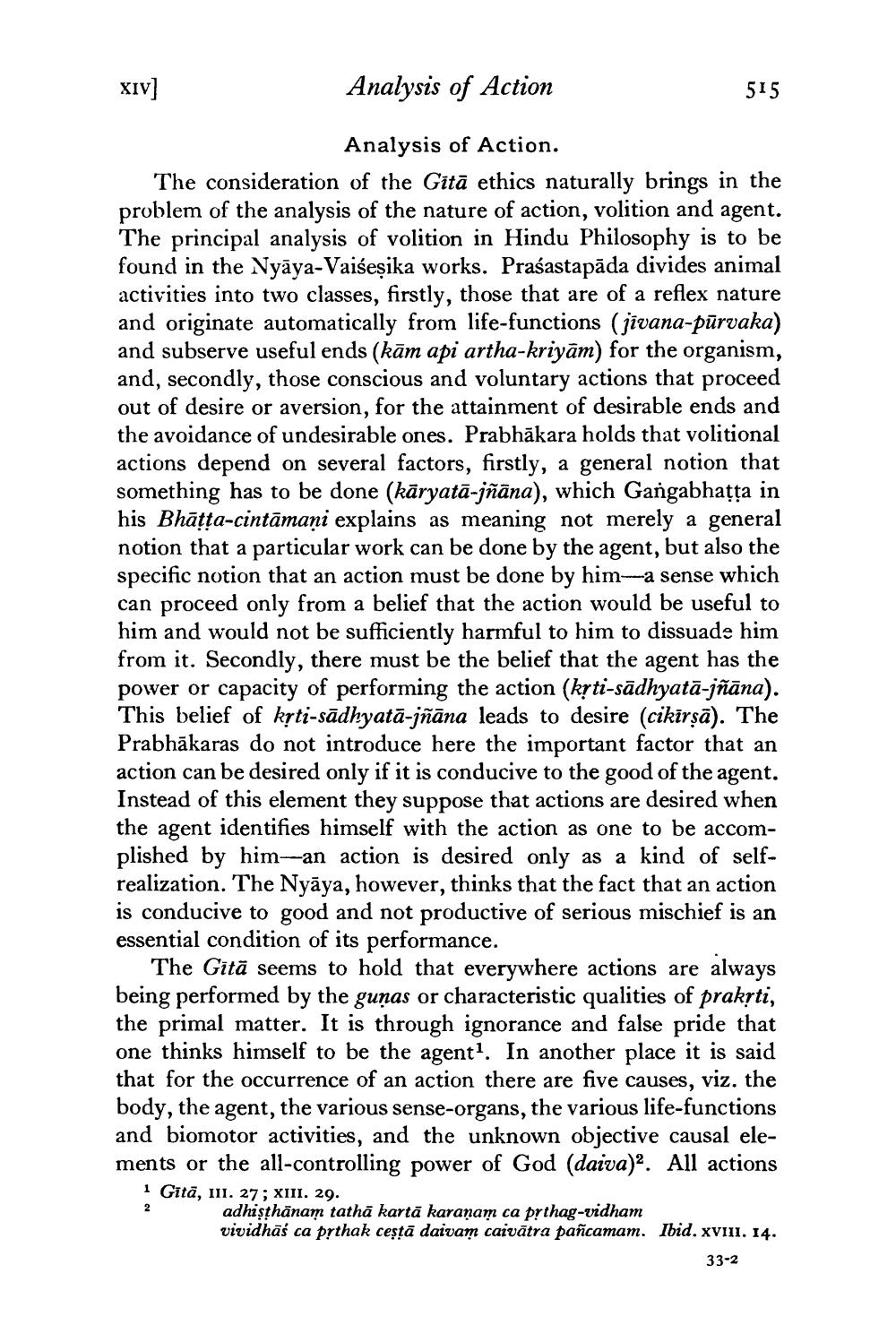________________
XIV]
Analysis of Action
515
Analysis of Action. The consideration of the Gitā ethics naturally brings in the problem of the analysis of the nature of action, volition and agent. The principal analysis of volition in Hindu Philosophy is to be found in the Nyāya-Vaiseșika works. Prasastapāda divides animal activities into two classes, firstly, those that are of a reflex nature and originate automatically from life-functions (jivana-pūrvaka) and subserve useful ends (kām api artha-kriyām) for the organism, and, secondly, those conscious and voluntary actions that proceed out of desire or aversion, for the attainment of desirable ends and the avoidance of undesirable ones. Prabhākara holds that volitional actions depend on several factors, firstly, a general notion that something has to be done (kāryatā-jñāna), which Gangabhatta in his Bhātta-cintāmaņi explains as meaning not merely a general notion that a particular work can be done by the agent, but also the specific notion that an action must be done by him--a sense which can proceed only from a belief that the action would be useful to him and would not be sufficiently harmful to him to dissuade him from it. Secondly, there must be the belief that the agent has the power or capacity of performing the action (kyti-sādhyatā-jñāna). This belief of kşti-sādhyatā-jñāna leads to desire (cikīrsā). The Prabhākaras do not introduce here the important factor that an action can be desired only if it is conducive to the good of the agent. Instead of this element they suppose that actions are desired when the agent identifies himself with the action as one to be accomplished by him-an action is desired only as a kind of selfrealization. The Nyāya, however, thinks that the fact that an action is conducive to good and not productive of serious mischief is an essential condition of its performance.
The Gītā seems to hold that everywhere actions are always being performed by the guņas or characteristic qualities of prakrti, the primal matter. It is through ignorance and false pride that one thinks himself to be the agenti. In another place it is said that for the occurrence of an action there are five causes, viz. the body, the agent, the various sense-organs, the various life-functions and biomotor activities, and the unknown objective causal elements or the all-controlling power of God (daiva)2. All actions i Gītā, 11. 27; XIII. 29.
adhisthānam tathā kartā karanam ca prthag-vidham vividhāś ca prthak cestā daivam caivātra pañcamam. Ibid. XVIII. 14.
33-2




